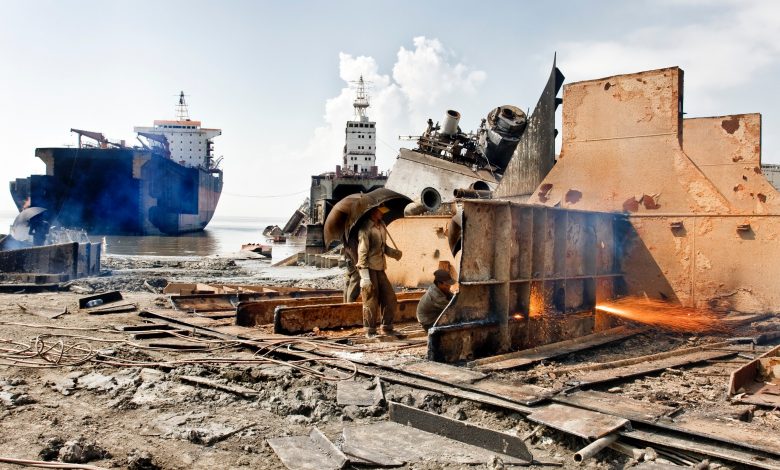
The president of the Bangladesh Shipbreakers’ Association (BSBA) and 14 other government officials have been issued with a contempt rule by the Bangladesh High Court, asking them to explain why they have not implemented a previous judgment that required a great level of supervision at shipbreaking yards.
In March 2009, the court ordered the Bangladeshi government to set up an independent supervisory committee, including non-government organisations and labour unions, to ensure impartial monitoring of demolition yards in the country.
The independent committee has never been made functional, according to the Bangladesh Environmental Lawyers Association (BELA). The association, which is a member of the NGO Shipbreaking Platform, submitted a contempt petition to the court, which resulted in the new contempt ruling. BELA says at least 93 workers have died since the 2009 court order.
The respondents must now submit written arguments to the court as to why they should not be held responsible for contempt of the 2009 rulings and “for deliberately and persistently ignoring safety of the workers and safety and integrity of the environment”. The parties may be summoned to appear in person before the court if their explanation is not deemed satisfactory.
“This step taken by the High Court fundamentally challenges the apathy of the government agencies in regulating the shipbreaking sector, as well as the strong culture of impunity the owners of shipbreaking yards enjoy due to their political connections,” Rizwana Hassan, chief executive of BELA and initiator of the petition, said in a release.
“This must end. We cannot accept any more deaths of labourers and someone has to finally take responsibility for the fatal accidents,” Hassan continued.
The 2009 ruling also ordered the Bangladeshi government to comply with the environmental requirements of the Basel Convention on the Control of Transboundary Movements of Hazardous Wastes and their Disposal, including the implementation of the Prior Informed Consent (PIC) procedure, by which Bangladesh approves the import of ships based on the amount of toxics onboard end-of-life vessels.
In 2009, the court found that certain shipbreaking yards did not hold the necessary environmental clearance to operate and a number were temporarily shut down as a result.
Now, BELA has petitioned the court to again suspend the activities of 42 shipbreaking yards. The association has accused some 37 shipbreaking yards of having unsafe working conditions that have resulted in accidents and deaths. BELA has provided information to the court on how seven specific yards violate the requirements for their environmental clearances, and says it is gathering evidence on more facilities.
BELA says many powerful figures in Bangladesh’s shipbreaking industry are also powerful politicians and industrialists, which has enabled yards to obtain “hastily issued” environmental clearances. “For the import of end-of-life vessels to Bangladesh, the authorities blindly accept fake certificates stating that all the old ships are free of hazardous waste. The authorities never ask anyone to follow the procedure of Prior Informed Consent,” the organisation said.
